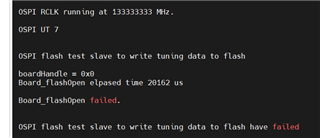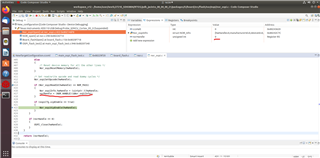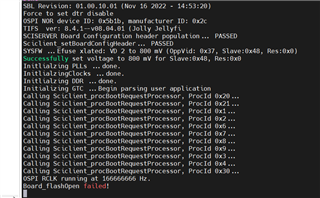Hello TI experts,
1. Environments:
RTOS SDK 8.4
Custom board Nor flash: MT35XU01GBBA1G12 (similar as j721e_evm default MT35XU512ABA1G12, So few changes are required)
Boot mode: "SD + SBL"
OSPI_Baremetal_Flash_TestApp: make -s -o0 BOARD=j721e_evm CORE=mcu1_0 BUILD_PROFILE=debug OSPI_Baremetal_Flash_TestApp
2. Problems:
Logs: Board_flashOpen failed.

3. Code debug:
follow guidelines: https://e2e.ti.com/support/processors-group/processors/f/processors-forum/1121933/faq-tda4vm-debugging-sbl-boot-in-rtos-sdk
I found that “norHandle = 0”(return value of Nor_ospiOpen()) causing this issue .
is there something i did wrong?



